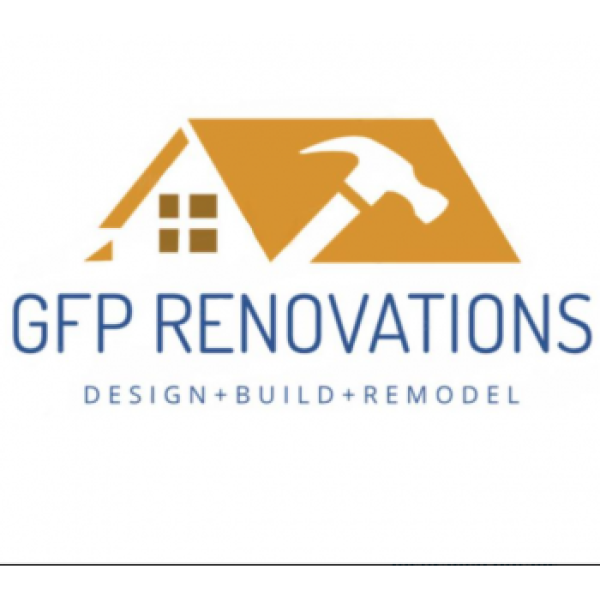Extension Builders in Richmond upon Thames, London
Filter your search
Post your job FREE and let trades come to you
Save time by filling out our simple job post form today and your job will be sent to trades in your area so you can sit back, relax and wait for available trades to contact you.
Post your job FREESearch Extension Builders in Richmond upon Thames, London by town
Understanding the Role of Extension Builders in Richmond upon Thames
Richmond upon Thames, a picturesque borough in southwest London, is renowned for its stunning landscapes and historical architecture. As families grow and lifestyles evolve, many residents find themselves in need of additional space. This is where extension builders in Richmond upon Thames come into play. These skilled professionals help homeowners expand their living spaces, blending modern needs with the borough's traditional charm.
The Importance of Choosing the Right Extension Builder
Choosing the right extension builder is crucial for ensuring that your project is completed on time, within budget, and to a high standard. A reputable builder will have a proven track record, excellent references, and a portfolio of completed projects that demonstrate their expertise. They will also be familiar with local planning regulations and building codes, ensuring that your extension complies with all necessary requirements.
Key Qualities to Look for in an Extension Builder
- Experience: Look for builders with extensive experience in the type of extension you require.
- Reputation: Check reviews and testimonials from previous clients.
- Communication: A good builder will keep you informed throughout the project.
- Transparency: They should provide clear quotes and timelines.
Types of Extensions Commonly Built in Richmond upon Thames
Homeowners in Richmond upon Thames have a variety of extension options to choose from, each catering to different needs and preferences. The most popular types include:
Single-Storey Extensions
These are ideal for expanding ground floor living areas, such as kitchens or living rooms. They often feature open-plan designs that enhance the flow of natural light.
Double-Storey Extensions
For those needing more space, double-storey extensions provide additional rooms on both floors. This option is perfect for growing families or those looking to add value to their property.
Loft Conversions
Converting an unused attic into a functional space is a popular choice. Loft conversions can serve as bedrooms, home offices, or playrooms, making the most of existing space.
Basement Extensions
Though less common, basement extensions offer a unique way to add space without altering the external appearance of a home. They can be used for a variety of purposes, including home gyms or entertainment rooms.
Planning Permission and Regulations
Before embarking on an extension project, it's essential to understand the planning permission and regulations in Richmond upon Thames. While some extensions fall under permitted development rights, others require formal planning permission.
Understanding Permitted Development Rights
Permitted development rights allow certain types of extensions to be built without planning permission, provided they meet specific criteria. These rights are subject to change, so it's important to consult with local authorities or a knowledgeable builder.
When Planning Permission is Required
If your extension exceeds the limits of permitted development, you'll need to apply for planning permission. This process involves submitting detailed plans and may require consultation with neighbours.
The Design Process: From Concept to Completion
The design process is a critical phase in any extension project. It involves translating your vision into practical plans that meet your needs and comply with regulations.
Initial Consultation and Site Assessment
The process begins with an initial consultation, where you discuss your ideas and requirements with the builder. A site assessment follows, allowing the builder to evaluate the feasibility of your project.
Design Development and Approval
Once the initial plans are drafted, they are refined and adjusted based on your feedback. The final design is then submitted for approval, ensuring it meets all regulatory standards.
Budgeting for Your Extension Project
Budgeting is a vital aspect of any extension project. It involves estimating costs and ensuring you have the necessary funds to complete the project without financial strain.
Factors Affecting Extension Costs
- Size and Complexity: Larger and more complex projects typically cost more.
- Materials: The choice of materials can significantly impact the budget.
- Labour: Skilled labour is essential but can be costly.
- Location: Costs can vary based on the location and accessibility of your property.
Creating a Realistic Budget
Work with your builder to create a detailed budget that includes all potential expenses. It's wise to set aside a contingency fund for unexpected costs.
Project Management and Timeline
Effective project management ensures that your extension is completed on time and to a high standard. A well-managed project minimises disruptions and keeps everything on track.
Setting a Realistic Timeline
Discuss the timeline with your builder and set realistic milestones. Regular updates and progress checks help ensure the project stays on schedule.
Managing Disruptions
Extensions can be disruptive, but good planning can minimise inconvenience. Consider temporary living arrangements if necessary, and communicate regularly with your builder to address any issues promptly.
Ensuring Quality and Compliance
Quality and compliance are non-negotiable aspects of any extension project. They ensure that your extension is safe, durable, and meets all legal requirements.
Quality Assurance Measures
Implement quality assurance measures throughout the project. This includes regular inspections and adherence to industry standards.
Compliance with Building Regulations
Ensure that your extension complies with all relevant building regulations. This may involve inspections by local authorities at various stages of the project.
Post-Completion Considerations
Once your extension is complete, there are several post-completion considerations to keep in mind. These include final inspections, snagging, and maintenance.
Final Inspections and Snagging
Conduct a final inspection with your builder to identify any issues that need addressing. Snagging involves fixing minor defects before the project is officially completed.
Long-Term Maintenance
Regular maintenance is essential to keep your extension in top condition. Discuss maintenance requirements with your builder and schedule routine checks as needed.
Frequently Asked Questions
- Do I need planning permission for a small extension? It depends on the size and location of the extension. Some small extensions fall under permitted development rights.
- How long does an extension project typically take? The timeline varies based on the size and complexity of the project, but most extensions take several months to complete.
- Can I live in my home during the extension work? In many cases, yes, but it may be disruptive. Discuss this with your builder to determine the best approach.
- What should I do if I encounter problems during the project? Communicate any issues with your builder immediately to find a resolution.
- How can I ensure my extension adds value to my home? Work with a reputable builder and choose designs and materials that enhance your home's appeal.
- What are the most common types of extensions in Richmond upon Thames? Single-storey, double-storey, loft conversions, and basement extensions are popular choices.
In conclusion, extension builders in Richmond upon Thames play a vital role in helping homeowners expand and enhance their living spaces. By choosing the right builder and understanding the process, you can ensure a successful project that meets your needs and adds value to your home.







